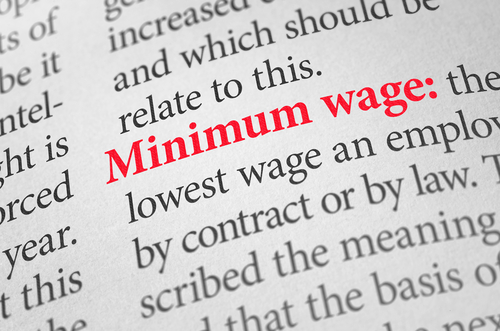
A new report from Penn State University has found that industries most exposed to minimum-wage labor may cut capital expenditures if the minimum wage increases.
Research by Matt Gustafson, Penn State Smeal associate professor of finance, found that when a state’s minimum wage goes up 10 to 20 percent, businesses like restaurants and retail stores invest in fewer establishments over the subsequent year or two.
“We found that when the minimum wage is raised, and therefore labor costs go up, these companies are going to take on fewer capital expenditures as investment projects,” Gustafson said. “So, let’s say there are 10 people thinking about opening up a second store. One or two of them will decide not to — they’ll cancel or delay that new establishment — because of that minimum wage hike.”
Over the past few years, states like California, Illinois, Maryland, Massachusetts, New Jersey, and New York have passed laws increasing the minimum wage from the current federal standard of $7.25 to $15. The movement, Gustafson said, has created “immense political pressure” to raise the federal minimum wage. However, he said, policy debates surrounding the issue are complicated because the impact of higher minimum wages on businesses and low-wage workers is uncertain.
Gustafson’s research looked at businesses that rely on minimum wage labor – retail establishments, restaurants, and entertainment establishments – in states that do not have their own minimum wage laws and have to change their minimum wage based on federal mandates. His research showed that fewer establishments in those states make capital investments in the two years following a minimum wage increase.
Gustafson said some of his colleagues were surprised by the findings and argued investments might go up as a result of investing in automation – investing in self-check-out kiosks, for instance, as a way to reduce labor costs.
“That’s a valid competing hypothesis — that these businesses will invest more in capital to substitute away from labor — but we didn’t find that to be a big effect,” he said. “Rather, the more predominant effect is that these businesses find fewer profitable opportunities to open new stores or locations.”